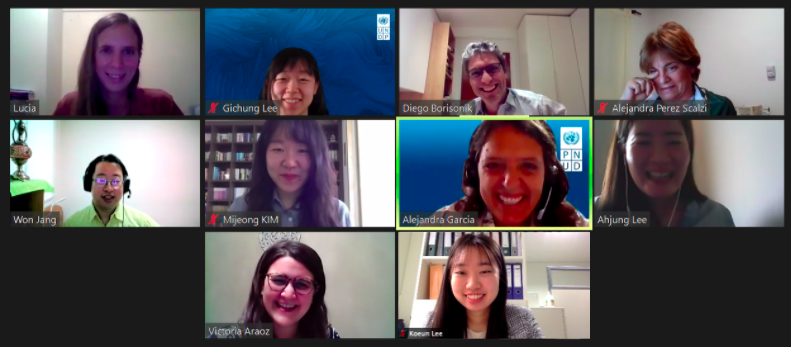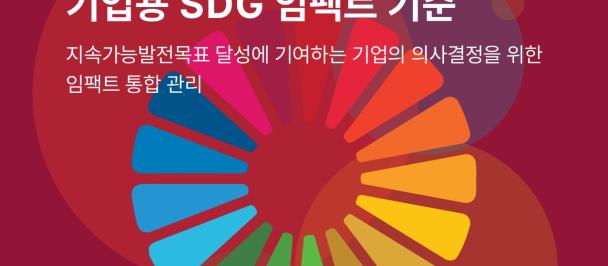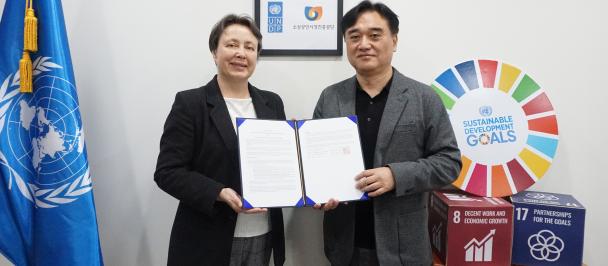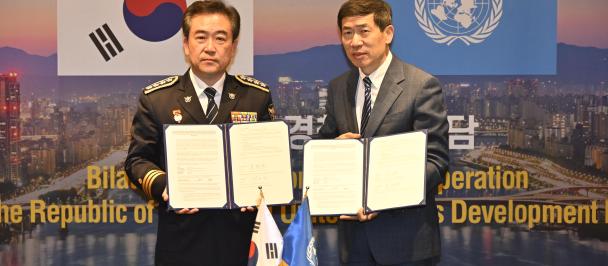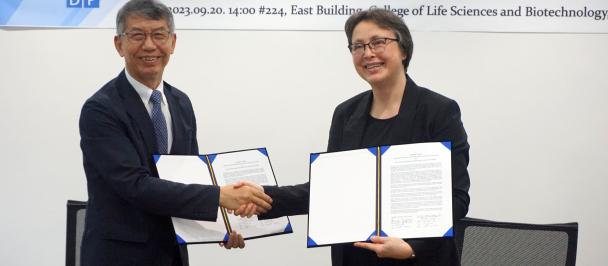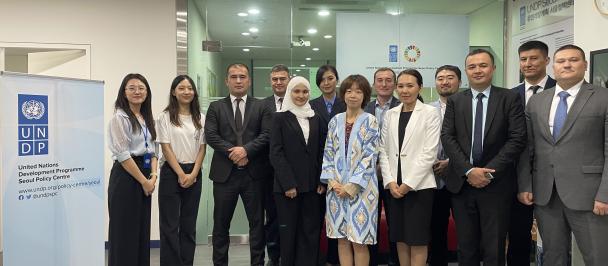On 29 April 2021, UNDP Seoul Policy Centre (USPC) held a technical meeting on "Korea's Sunflower Center Monitoring & Evaluation (M&E) Framework for Identifying Application Steps in Argentina", with representatives from UNDP Argentina and the Government of Cordoba. This technical meeting was the second occasion where all the partners gathered once again after the Project Inception Meeting in December 2020. The primary aim of the Argentine partners has been to resolve challenges within their existing Sexual and Gender-Based Violence (SGBV) victim (survivor) support system by adapting the M&E tool developed in Korea's Sunflower Centers.
The Sunflower Center is Korea's integrated one-stop service mechanism, fully funded by the Korean Government, providing medical, counselling, legal and police investigation services for SGBV victims (survivors) in a single location. Centers have been designed to reduce and eliminate issues occurring from the long waiting periods in hospitals, denial of treatment, and victims having to visit multiple institutions such as hospitals, police stations, and lawyer's offices. While the Province of Cordoba in Argentina currently operates its one-stop service for SGBV victims (Polo integral de la Mujer), which is similar to the Sunflower Centers, one of their biggest challenges has been establishing a stronger survivor-oriented support system as well as developing the capacities of the institution and staff members. Argentina has recognized the importance of a thorough and systematic M&E mechanism to respond to the challenges.
The meeting commenced with the partners exchanging their appreciation for the partnership, especially as USPC's SGBV and Gender Specialist Mr. Won Jang recently joined this Korea-Argentina partnership. The meeting then proceeded with the presentation on the Sunflower Center's M&E framework prepared by Mr. Jang. His presentation firstly reiterated the core features of Korea's Sunflower Centers and touched upon the Centers' provision of professional and rights-based services across the thematic areas, including counselling, psychological, medical, and legal support. The presentation then moved on to the institutional framework and main indicators of M&E system and how the Sunflower Centers' M&E mechanism is given its legal mandate and obligation via the Sexual Violence Prevention and Victims Protection Act of Korea. Emphasis was placed on the fact that evaluation is implemented in a three-year cycle with constant improvements and reflections taking place over time. The four key criteria for M&E mentioned were: 1) facilities and safety, 2) management and human resources, 3) service provision and human rights protection, and 4) interview-based evaluation.
USPC's presentation was also forthcoming about the challenges and lessons learned from Korea's M&E experience. Limitations such as lack of a systemic follow-up, confidentiality issues arising from beneficiary surveys, low staff retention rates were mentioned. Based on such challenges that RoK has experienced, USPC provided the Argentinian partners some key recommendations for M&E: 1) maintaing continuity and consistency by designating a single evaluation agency 2) securing budget for follow-up measures and human resources, 3) protecting confidentiality in beneficiary surveys, 4) using qualitative indicators 5) providing incentives for staff members, 6) recognizing high-performing centers, and most importantly 7) customizing M&E tools to one-stop service centers for GBV survivors.
The Q&A session opened up the floor to the Argentinian partners, who asked some questions on practical issues, including the adaptation of M&E and some potential challenges for Argentinian staff. In response, Ms. Ahjung Lee, the Governance Portfolio Manager at USPC, suggested utilizing a points-based evaluation system so that the centers are relieved from the burden of meeting every single target. She also noted that it is important to have discussions with the one-stop service providers and establish a strong management system. After the productive exchange of questions and answers, the meeting concluded with the Korean and Argentinian partners discussing the next steps.
* UNDP Seoul Policy Centre (USPC) shares Korea's tested-and-proven policy tools with other countries through SDG Partnerships. As part of this effort, since 2017 USPC has been working with the Korean police and Ministry of Gender Equality and Family, and Sunflower Centers to share their knowledge and experience in responding to SGBV to partner countries around the world.

 Locations
Locations